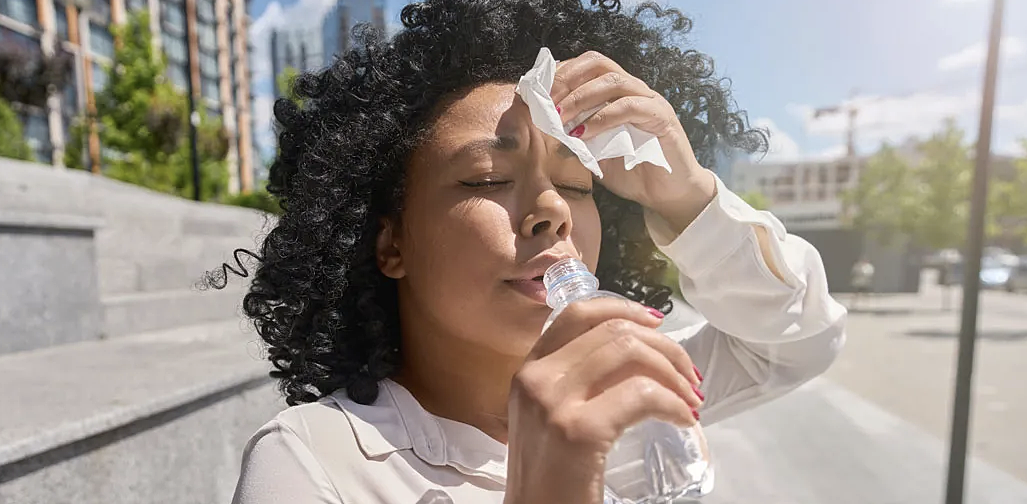Professor Mike Tipton, from the Extreme Environments Laboratory at the University of Portsmouth (UK), said that humans are accustomed to an environment of around 26°C. "We haven't evolved to do manual labor in protective suits or sit in stuffy offices in high temperatures," he said. Therefore, cooling down the body is important for maintaining health and ensuring productivity.
In addition to familiar methods, Professor Mike Tipton introduces four science-backed techniques below to help you cope with the heat more effectively.
Cool your hands
Many people's first reflex when they're hot is to cool their face, but this isn't the fastest way to lower body temperature. According to Professor Tipton, cooling your face only provides immediate relief but doesn't actually release much heat.
A more effective method is to immerse your hands in cold water. Hands have a large surface area-to-volume ratio and are where the body sends blood to release heat when body temperature rises.
"It's important to distinguish between things that make you feel cooler and things that actually make you cooler," Professor Tipton emphasized.
 |
Instead of washing your face, immersing your hands in cold water helps the body cool down faster. Illustrative photo: BBCSciencefocus |
Instead of washing your face, immersing your hands in cold water helps the body cool down faster. Illustrative photo: BBCSciencefocus
Avoid cold showers
A cold shower might seem appealing, but it's a very slow way to cool down. Cold water constricts blood vessels, reducing blood flow to the skin and trapping heat inside the body.
The solution is to shower with warm water. Warm water helps bring blood to the skin's surface, gradually releasing heat. The ideal temperature depends on individual body types and the weather, but relatively warm water is the best option.
Drink warm beverages
Drinking hot drinks to cool down may seem counterintuitive, but it's effective. Hot drinks don't cool you down directly, but they activate the body's natural cooling mechanism: sweating. Eating a hot curry has a similar effect.
However, replenishing fluids at any temperature is essential for the body to sweat. A glass of cold water can hardly quickly lower the body temperature of an adult, who has about 40 liters of water in their body. "Adding a glass of cold water is like a drop in the ocean," Tipton said.
Note that coffee and tea should be avoided. Caffeine and alcohol increase metabolic rate, causing the body to produce more heat, and are also diuretics that can lead to dehydration.
Use fans correctly
Using a fan is a common practice, but it's important to direct the airflow towards the largest possible skin area, rather than just the face.
Fans not only push hot air away but also help sweat evaporate – the body's only cooling mechanism when the ambient temperature reaches 35°C. Sweat evaporation depends on the airflow over the skin.
To create better airflow, you can open multiple windows or use a hand fan.
Minh Phuong (Science Focus)












